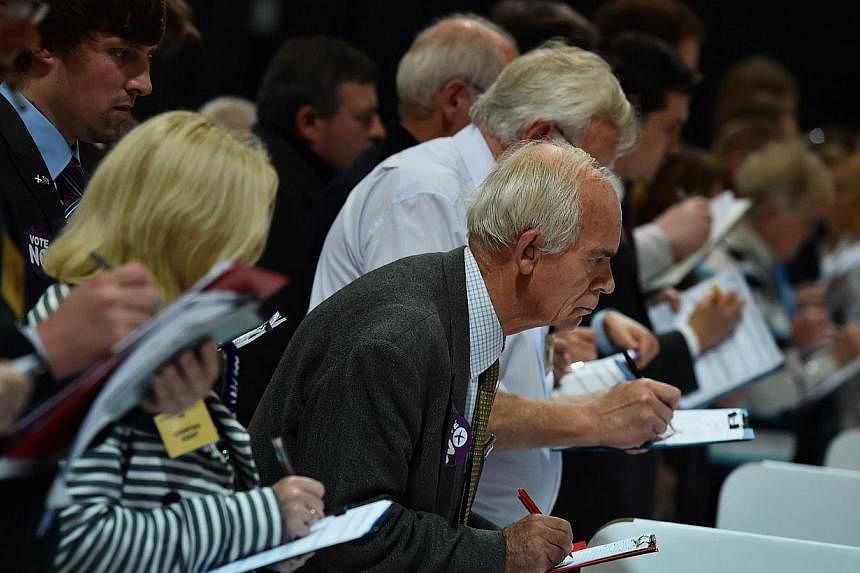Scotland looks likely to have voted "no" in a historic referendum on separation from the rest of the United Kingdom.
Although heavy turnout of around 90 per cent has slowed down the count and final Scotland-wide results are not expected at least until 2 pm Singapore time, the initial count indicates that those casting "no" ballots to the independence question have triumphed by a higher margin than anticipated.
On the eve of Thursday's vote, opinion polls indicated a race that was too close to call, with the difference between the "yes" and "no" camps being smaller than the traditional margin of error in such polls. But the only exit poll published immediately after the ballots closed in Scotland indicated a 54 to 46 per cent division in favour of the "no" camp, and that figure was quickly confirmed by Clackmannanshire, the first Scottish county to confirm the electoral tallies.
Although it is a small county in the heart of Scotland and its vote will not make much difference to the overall results, Clackmannanshire is the kind of region the Scottish nationalists have to win if they were to triumph in their bid to create a new independent country. The fact that Clackmannanshire was captured by the "no" camp and by precisely the 54 to 46 per cent margin predicted by the exit poll, is ominous for those wishing to create an independent Scotland.
Observers said what appears to have happened is that many Scots felt intimidated or fearful to admit that they were going to vote against independence, but did so in the privacy of the electoral booth. It also looks likely that the traditional vote for the two mainstream British political parties - Labour and the Conservatives, both of which oppose Scotland's independence - held up far better than initially assumed.
Rumours abound in Scotland that Chief Minister Alex Salmond, who fought passionately for independence, may be about to suffer the ultimate humiliation of being rebuffed in the referendum in his own parliamentary constituency of Aberdeenshire.
"I think we have won the fight for the preservation of the United Kingdom," a British government source in London told The Straits Times. But he also admitted that the country will never be the same again - even if Scotland rejects the independence option. Years of haggling about a new constitutional settlement with a large measure of autonomy for the province still lie ahead, he added.
The real indicator of the final results will only come when figures are released for the voting in Edinburgh and Glasgow, Scotland's biggest cities which between them account for more than half of all voters.

